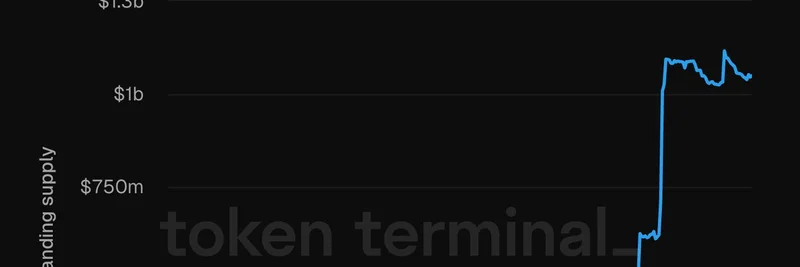Hey there, crypto enthusiasts! If you’ve been diving into the wild world of decentralized finance (DeFi) and yield farming, you might’ve found yourself in a bit of a pickle when it’s time to explain your latest financial moves to your accountant. A recent tweet from PixOnChain perfectly captures this struggle with a humorous twist. Let’s break it down and figure out how to make sense of it all—especially as we roll into July 2025!
What’s the Tweet About?
PixOnChain’s post from June 30, 2025, paints a vivid picture: they’ve turned their “magic internet tokens” (aka cryptocurrencies) into “tokenized, decentralized ownership certificates of on-chain stocks,” stashed them in a “blockchain-native, algorithmically optimized, yield-extracting vault,” and ended up with new digital currencies via an airdrop. Sounds like a sci-fi novel, right? But it’s real—and it’s a strategy some are using to maximize returns in the crypto space.
The tweet’s humor shines through as PixOnChain struggles to translate this into terms their “Earth-bound” accountant can grasp. The replies range from “don’t even try” to creative analogies like chickens and elephants—proof that this is a universal challenge for crypto users!
Breaking Down the Jargon
Let’s simplify the key concepts so you can chat with your accountant without losing them:
- Magic Internet Tokens: This is just a playful way to say cryptocurrencies like Bitcoin or Ethereum. These are digital assets stored on a blockchain, a decentralized ledger that records transactions.
- Tokenized, Decentralized Ownership Certificates: Think of this as turning traditional stocks into digital versions using tokenization. It’s like owning a piece of a company, but it’s now on the blockchain.
- Yield-Extracting Vault: This refers to yield farming, where you “plant” your crypto in a DeFi platform to earn rewards. It’s like putting money in a high-interest savings account, but with more steps—and risks!
- Airdrop: A free distribution of new crypto tokens to wallet holders, often as a marketing trick to boost a project’s popularity (read more on Wikipedia). It’s like getting free samples at a store!
How to Explain This to Your Accountant
Your accountant might be used to traditional investments like stocks and bonds, so bridging the gap is key. Here’s a step-by-step approach:
- Start Simple: Tell them you invested in digital assets (cryptocurrencies) and used a platform to lend them out for interest—similar to a bank deposit.
- Introduce Tokenization: Explain that some of these assets represent ownership in companies or projects, just like stocks, but they’re digitized and tracked on a blockchain.
- Describe Yield Farming: Compare it to earning dividends or interest, but note it’s done through decentralized apps (dApps) that use smart contracts—self-executing agreements on the blockchain.
- Mention the Airdrop: Frame it as a bonus reward, like a loyalty program perk, where you got free tokens for participating early in a project.
For example, you could say: “I put my crypto into a DeFi platform to earn interest, kind of like a savings account. I also got some digital ‘stocks’ and a bonus of new tokens as a thank-you for joining early. Can we figure out how to report this?”
Why This Matters in 2025
As of July 2025, DeFi and meme tokens are hotter than ever, with platforms like Hyperliquid gaining traction (check out Grok’s insights). Tax authorities are also cracking down on crypto reporting, so clear communication with your accountant is crucial. The ACCA Global guidelines suggest cryptocurrencies aren’t cash equivalents due to volatility, so they’ll likely need to be treated as intangible assets or investments.
Tips from the Community
The thread offers some fun ideas:
- CryptoTaxMadeEasy offers to help explain it—consider hiring a crypto-savvy accountant!
- 0x002timmy suggests a chicken-and-elephant analogy: “I left my crypto with a farm manager (the vault), and they gave me an elephant (airdrops) as a thank-you.”
- Others say timing is everything—getting in early on projects like AGNT Hub could maximize rewards.
Final Thoughts
Explaining yield farming and airdrops to your accountant doesn’t have to be a headache. With a bit of patience and the right analogies, you can bridge the traditional finance world with the crypto frontier. As meme tokens and DeFi evolve, staying informed through resources like meme-insider.com will keep you ahead of the curve. So, grab a coffee, schedule that meeting, and let’s make those “magic internet tokens” work for you—legally and profitably!
Got your own crypto story? Drop it in the comments below—we’d love to hear how you navigate this space!


